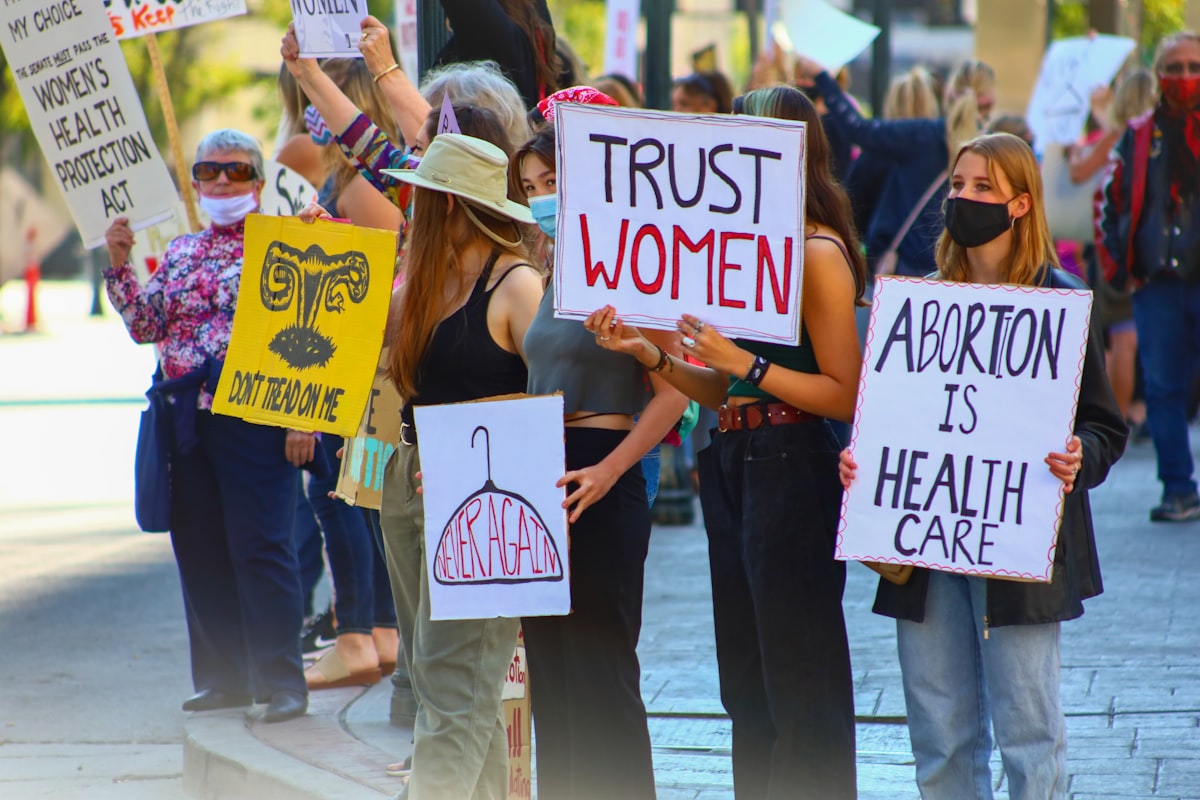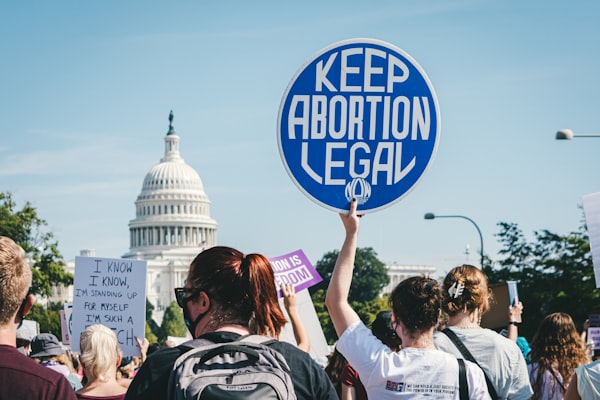In Politics, Abortion Takes Center Stage

As the country gears up for another election in November, there are several concerns that will be top of mind for voters. But perhaps the issue that could make the biggest difference is one that became front and center as states like Texas moved to restrict it: abortion.
Texas is one of several states under Republican control where abortion is effectively banned. Senate Bill 8, a six-week abortion ban that also allows private citizens to sue anybody they suspect has aided or abetted an abortion, went into effect in September 2021, months before Roe v. Wade was overturned by the Supreme Court.
President Biden is signaling that abortion will be a major part of his re-election campaign. Earlier this month, the White House convened a meeting of its Task Force on Reproductive Healthcare Access to announce new initiatives about accessing abortion and contraceptive care. The campaign also launched a new ad featuring Dr. Austin Dennard, a Texas OB-GYN who was forced to leave the state for an abortion of a fetus with a fatal condition. In the ad, Dennard blames what happened to her on Donald Trump and the three Justices he appointed to the Supreme Court.
Skye Perryman, the President and CEO of Democracy Forward, believes that abortion is an issue that will shape the election on a local and national level, just like it did in 2022 and 2023. Every time abortion has been a direct issue confronting voters, the electorate has chosen on the side of abortion rights, even in “red” states like Kansas, Ohio, and Kentucky.
“I think it’s clear we’ve seen broad support by people throughout the country, including in places like Texas of fundamental freedoms, which includes the freedom to control the course of one’s healthcare,” said Perryman in an interview with the Texas Signal Media Foundation. Perryman also sees the stories of those like Dennard, or Kate Cox making an impact on voters.
Kate Cox, a Dallas woman facing a life-threatening pregnancy with a nonviable fetus, was forced to leave the state for care after the Texas Supreme Court ruled she did not meet a narrow requirement for terminating a pregnancy. Democracy Forward filed an amicus brief to the Texas Supreme Court on behalf of the American College of Obstetricians and Gynecologists (ACOG) and the Society for Maternal-Fetal Medicine (SMFM) to support Cox.
“We’ve seen devastating consequences and no place have the consequences been more devastating than Texas,” said Perryman. The brief supporting Cox also outlined concerns from many that states with abortion bans, like Texas, will face stiff doctor shortages because of draconian and onerous restrictions on medical care.
On a press call convened for the anniversary of Roe v. Wade, doctors from a national advocacy organization, the Committee to Protect Healthcare, also discussed the impact of abortion bans on their future. Dr. Bhavik Kumar, a Texas-based physician, specifically mentioned Kate Cox, and said that a national abortion ban could become a reality depending on who wins the White House in November. Under one scenario, patients would not be able to travel to “blue” states for care. “Patients would be forced to carry pregnancies to term seemingly no matter the risk to their health or life,” said Kumar.
Meanwhile, even as Donald Trump continues to brag about overturning Roe v. Wade, other down-ballot Republican candidates are running away from the issue of abortion. Once a very vocal opponent of abortion, U.S. Rep. Monica de la Cruz has “scrubbed” any mention of abortion from her website. Last year, her colleague in Texas, U.S. Rep Tony Gonzales said that women have a “whole lot more issues than abortion” in a CNN interview.
While Gonzales may want to “get off the abortion conversation” (as he also said in the interview), it’s unlikely he will get his wish before November.






